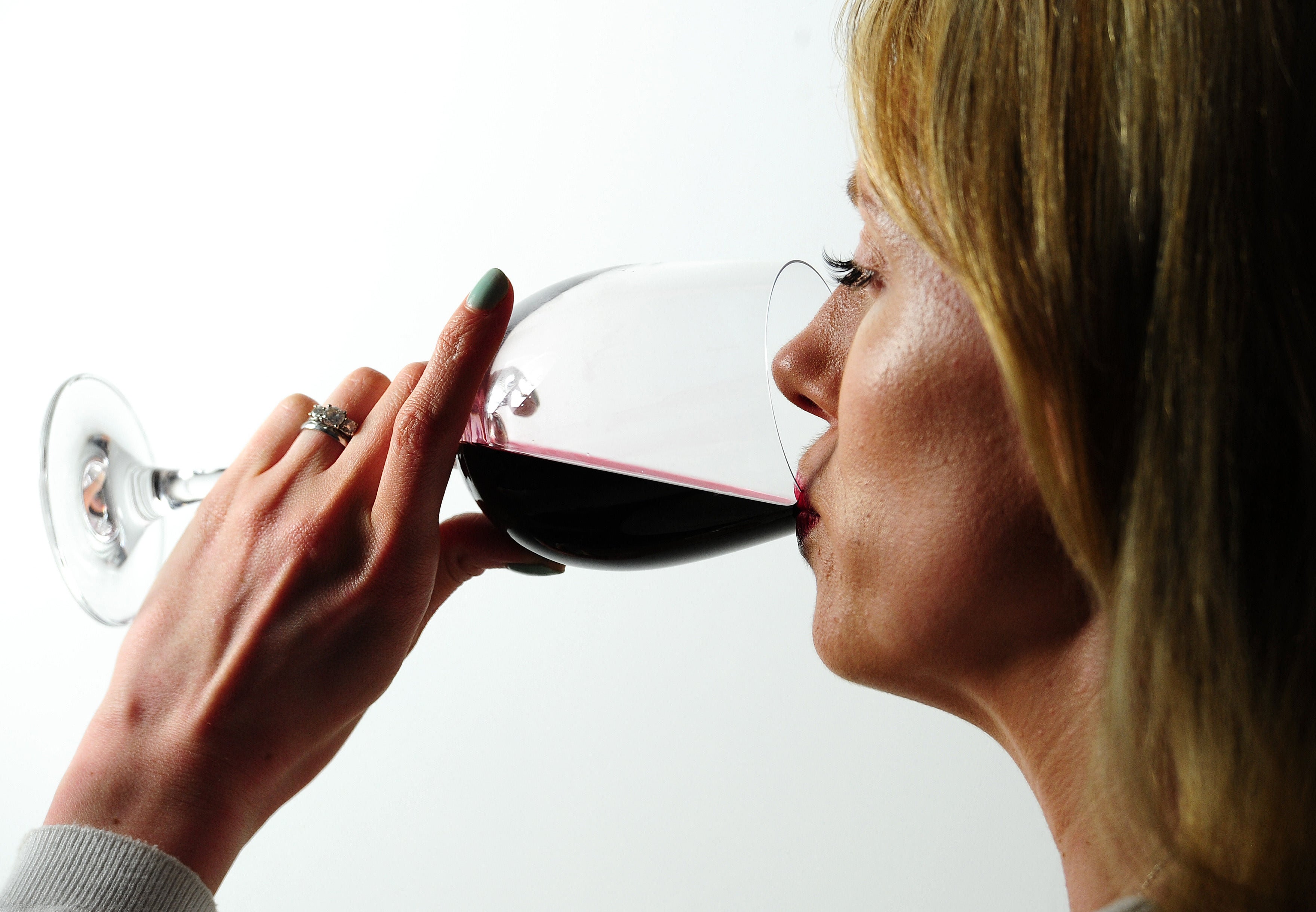The moment I realised midlife, menopause and merlot don’t mix
According to the latest NHS figures, the people with the biggest drink problem are middle-aged women – and it’s thanks to ‘wine o’clock’ frivolity that the party’s over, says Clair Woodward


I saw the excellent revival of Abigail’s Party at the Theatre Royal Stratford East on Saturday. Its biting social satire stands up after almost 50 years – but what I still found a bit shocking was the amount of booze that the characters sank at the revolting Beverly’s 1977 drinks party.
Light ales, Bacardi rum and gallons and gallons of gin flowed, with hostess Beverly offering her guests many “little drinks” and top-ups, leading to a nasty, alcohol-fuelled conclusion. God knows what might have happened if the play had been updated for today – a shrieking brawl in the street and an empty bottle of chardonnay rebounding off someone’s head, probably.
Women’s drinking is an increasing societal problem, with the number of women dying from alcohol-related diseases in the UK increasing by 37 per cent in the five years between 2016 and 2021; the highest level since records began.
And midlife women aren’t doing themselves any favours in this area. The latest NHS England figures, from 2022, reveal that 23 per cent of women aged 55-64 age category are drinking more than the recommended limit of 14 units of alcohol a week – equivalent to seven glasses of wine – a figure that significantly raises the risk of cancer.
I can’t imagine the ladies in Abigail’s Party drinking this much (except Beverly), but since the Seventies, boozing has become more acceptable for women. Reasons for this are thought to include women’s changing role in the workplace, empty-nest syndrome, Nineties ladette culture, changing habits during the Covid lockdowns, and alcohol advertising targeting women.
I used to be a fairly enthusiastic binge drinker, and I’d add Fomo to that list. Working as a journalist where free booze – often at the cheaper end of the wine list – was flowing meant that a glass of Dutch courage became rather more, and I was having such a good time that I didn’t want to leave.
Eventually, I realised that I was making a tit out of myself, and rather than being amusing, I was just hideous when I was drunk
And socialising, well, I just wanted to carry the evening on, and who knows what ker-azy adventure might happen next? Just a lot of embarrassment, really, with me becoming the one who everyone talked about the morning after. There was one party in Tulse Hill which still makes me break out in a cold sweat when I remember what I did.
Eventually, I realised that I was making a tit out of myself, and rather than being amusing, I was just hideous when I was drunk. A close friend had the same drinking patterns as me, and he went teetotal; this meant I reassessed my relationship with alcohol, and now, when I’m out, one or two is enough for me. If I’m entertaining at home, I might have more, but that’s helped down by a large amount of food and the fact I don’t have to cry on the night bus home.
I feel angry that alcohol is now seen as a tremendous “fun” thing for women that’s a big part of their lives. The wine-o’clock culture which marks the end of the working day, books like Why Mummy’s Sloshed (“Mummy knows for sure is that the bigger the kids, the bigger the drink!”); outrageous drag queens advising women that a tinned cocktail will make life more fun.
Oh, and the endless alcohol-themed gifts and cards: Christmas mugs with “Gin-gle bells” written on them, cards with girls’ nights out featuring huge glasses of wine and endless pink drinks in novelty shoe bottles.
Please make it stop. I’m so glad I changed my relationship with alcohol, as it really wasn’t as fun as all the novelty gifts would have us believe. Life really is better without a booze-addled brain – and midlife, menopause and merlot make a very unattractive combination.



Join our commenting forum
Join thought-provoking conversations, follow other Independent readers and see their replies
Comments